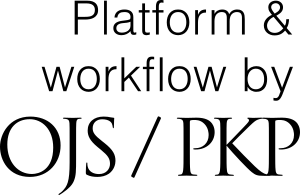The influence of glutathione pathway modulators on the cytotoxicity of sunitinib, doxorubicin and bortezomib in AC16 cardiac cells
DOI:
https://doi.org/10.48797/sl.2023.62Keywords:
Selected Oral CommunicationAbstract
Background: Cancer survivorship has grown over the years due to more efficacious treatments. Nonetheless, anticancer treatments present serious adverse effects, namely cardiotoxicity. Doxorubicin (DOX), a topoisomerase II inhibitor; sunitinib (SUN), a multikinase inhibitor; and bortezomib (BTZ), an inhibitor of proteasome, have their clinical use limited because of their cardiotoxicity. Cardiotoxicity is often linked to oxidative stress. Nuclear factor erythroid 2–related factor 2 (Nrf2) controls the expression of the antioxidant response element and is an important emerging regulator of oxidative stress response. Nrf2 regulates glutathione (GSH) homeostasis, being this the most important cellular antioxidant. Objective: To study the influence of Nrf2 activators, like SK-119 and SH-29, and GSH modulators, namely its precursor N-acetylcysteine (NAC) and the γ-glutamylcysteine synthetase inhibitor, L-buthionine sulfoximine (BSO) on the cytotoxicity of SUN, DOX and BTZ in human differentiated AC16 cardiac cells. Methods: AC16 cells were differentiated with horse serum and then exposed to different concentrations of SUN (1–20µM) or DOX (0.1–10µM) or BTZ (0.01–20µM) for twenty-four or forty-eight hours to assert their cytotoxicity. The two cytotoxicity assays done were the MTT reduction and neutral red uptake assays. Then, two concentrations of SUN (1 and 10µM), DOX (0.1 and 1µM) and BTZ (1 and 0.01µM) were co-incubated with BSO, NAC, SK-119 or SH-29. Results: A time and concentration-dependent cytotoxicity was observed in the anticancer therapies, being the degree of toxicity as follows: BTZ>DOX>SUN when using equimolar concentrations. Regarding data with Nrf2/GSH modulators, a small but significant protection was achieved with NAC towards the cytotoxicity of DOX. BSO had no effects on the cytotoxicity of the anticancer agents. SK-119 and SH-29 are still being evaluated, showing no relevant cytotoxicity in the micromolar range. Conclusions: This work showed that DOX, SUN and BTZ cause significant cytotoxicity in AC16 cells, being GSH pathways involved in DOX toxicity. Nonetheless, more studies are needed, being key to determine the role of Nrf2 on the cytotoxicity of these anticancer therapies.
References
1. Reis-Mendes, A., et al., Role of Inflammation and Redox Status on Doxorubicin-Induced Cardiotoxicity in Infant and Adult CD-1 Male Mice. Biomolecules, 2021. 11(11).
Downloads
Published
How to Cite
Issue
Section
License
Copyright (c) 2023 C. Vitorino-Oliveira, S. Kahremany, L. Nisim, M. Duarte-Araújo, F. Carvalho, A. Gruzman, V. M. Costa

This work is licensed under a Creative Commons Attribution 4.0 International License.
In Scientific Letters, articles are published under a CC-BY license (Creative Commons Attribution 4.0 International License), the most open license available. The users can share (copy and redistribute the material in any medium or format) and adapt (remix, transform, and build upon the material for any purpose, even commercially), as long as they give appropriate credit, provide a link to the license, and indicate if changes were made (read the full text of the license terms and conditions of use).
The author is the owner of the copyright.









